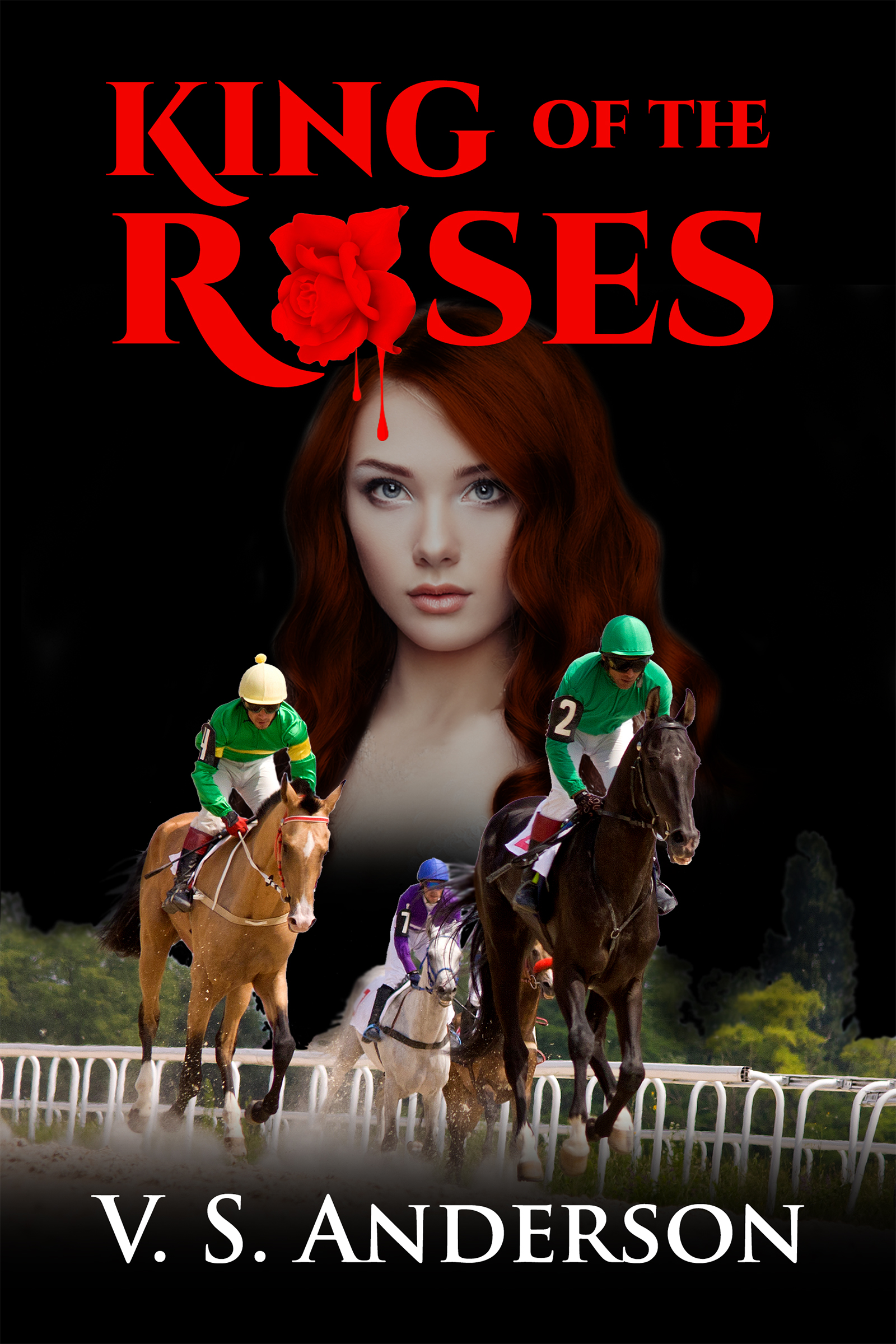Hello, readers,
I need your help.
On January 11, 2018, I shared a post from Victoria Strauss of Writer Beware about possible copyright infringement by the Internet Archive, which scans books and posts them for free in a “lending library” without notifying authors or receiving permission.
On the Internet Archive site, I found a pdf of the 1989 mass-market paperback of my novel, King of the Roses (originally published by St. Martin’s in 1983). I sent two email notices requesting that the book be taken down, using the free form included in Victoria’s original post.
I have received a response. The response raises several questions for me and I would appreciate feedback from readers. In particular,
1) Have I understood the response correctly?
2) What is the correct and ethical response to the fact that the Internet Archive plans to retain a copy of my book for “blind and print-disabled” readers?
Here’s what I did in order to get a response:
After sending the two notices and receiving no response, I followed a link in Victoria Strauss’s post to the Internet Archive site. There, on the blog page for the site, I discovered a comment box.
Into that box I posted; “I have sent two takedown notices about my book, which is still under my copyright and is available as a self-published Kindle edition, but you have not responded. Please post a link to the “Notice and Takedown” process you reference above on your home page. My next step will be to seek legal advice and, if necessary, take you to court.”
Within 36 hours, I received the following email, which I paste here in full:
Dear Ms. Anderson,
Thank you for your emails.
To help clarify things regarding the item you have identified (https://archive.org/details/kingofroses00virg) – blind and print-disabled patrons (verified by formal institutions including the Library of Congress) may access special electronic versions of the book that can be used with accessible software. They agree not to make copies or distribute materials. Our program to enable blind and print-disabled access has been in operation since 2010 (our original press release w/links to stories in the media can be seen here).
There is no other access available to this item (lending access for general users has been disabled). Please feel free to check the links under “Download Options”. They are all inoperable or include only to metadata (i.e., catalog information about the text, not the text itself).
And of course, the Internet Archive offers these texts on a wholly non-commercial basis. Our project, organization, and mission are entirely charitable and oriented towards broad social benefit.
Again, thank you for getting in touch with us. Hoping this information is helpful.
—
The Internet Archive Team
Here’s what I think it says:
1) My book is no longer available for free in their lending library.
2) They do post the metadata for my book.
3) A free version of my book is still available to disabled readers who have some kind of “accessible software” and who are somehow bound not to share the book with others.
Remaining concerns/questions:
1) How readers qualify for free access to this book is not well explained.
2) The copy of the book on their site is a pdf of the original 1989 paperback, and is of very poor quality. Is there “accessible software” that can actually read this text?
3) Doesn’t the decision of the Internet Archive to retain this version of my book still constitute copyright infringement, since access is being supplied to these readers without my permission?
Obviously, the appeal is to my sense of pathos. How could I possibly deny disabled readers access to my incredibly wonderful book?
On the one hand, of course I’m vulnerable to such an appeal. On the other, while I do not have an audio version of my book, is there no software that readers with disabilities can use to access a paperback or Kindle version purchased through regular channels? How can authors be sure that the readers who still have access to their books for free through the Internet Archive really need the charitable services of the Internet Archive?
I suspect that my book will not be high on the list of frequently downloaded books, whether by readers with disabilities or others. Some authors, though, may find that their books are likely to be frequently accessed.
The bottom line, in my view, is that the decision to post a book for free, whether for abled readers or readers with disabilities, should be made in conjunction with, and with the permission of, the author/copyright holder. Anything else is still a copyright violation.






you should use this as free advertising. people who want to buy the book they will do so anyways.. too much trash is sold anyways that writers dare to call books.. read david hawkins on success and you will understand.
LikeLike
Thanks for your comments. Some big guns agree with you! https://justcanthelpwriting.com/2019/08/18/how-ive-come-to-love-book-pirates/
LikeLike
Reblogged this on When Angels Fly.
LikeLiked by 1 person
Thanks again! All writers can benefit from knowing about these issues.
LikeLiked by 1 person
So true! Sadly so in my case.
LikeLiked by 1 person
Pingback: Copyright Infringement Issues: Internet Archive Still at It | Just Can't Help Writing
Pingback: Internet Archive Ignores DMCA Notices - Brewster Kahle Lied | The Digital Reader
Pingback: Accessibility to print for visually-impaired persons–The Marrakesh Treaty | College Composition Weekly: Summaries of research for college writing professionals
Pingback: Follow-Up: Copyright Issues at Internet Archive—The Marrakesh Treaty | Just Can't Help Writing
In their About Page they state three things of interest:
– Anyone with a free account can upload media to the Internet Archive.
– We work with thousands of partners globally to save copies of their work into special collections.
This implies your books should only have been uploaded by you.
They also do state:
– Some of our digitized books are only available to the print disabled.
They have restricted your ‘King of the Roses‘ book.
However, if you click on your Authors name, it takes you to two books (at: https://archive.org/search.php?query=creator%3A%22Anderson%2C+V.+S%22)
Your second book ‘Storm Front’ is NOT restricted.
If you, or your publisher, have not set up an account and uploaded your books, then the Internet Archive should either, take both books down, or, ask for your permission to have them in their archives.
In any case, permission should have been requested from you (from the IA directly, or, via your publisher)
LikeLiked by 2 people
Thanks, Chris. I hadn’t searched for Storm Front because it’s sort of off my radar–not available in Kindle and not likely to be since I’m not going to re-publish it. Still, I need to make a decision with regard to that book. It appears that the Internet Archive simply does not seek out authors and ask before uploading books.
LikeLiked by 1 person
I am registered blind and have published a number of books, so can see the copyright issue from both the point of view of the visually impaired and that of the author. It is no longer necessary to gain permission to produce an accessible version of a work, provided that the work in question is only used by those with disabilities which make it difficult and/or impossible for them to read print. You may find this link helpful, http://www.rnib.org.uk/copyright-visually-impaired-persons-act-2002-comes-force. As regards how visually impaired readers read books, as you are probably aware the Kindle has a text to speech facility which enables books to be read aloud. Consequently a visually impaired person (or anyone else) who activates this facility can have the relevant book read out to him/her. There are also accessible pdfs which can be read with software such as Job Access with Speech or JAWS, which converts text into speech and braille enabling a visually impaired individual to use a standard Windows computer. I am using JAWS to write this as I can’t read my computer’s screen. I can’t comment on the Internet Archive as I am not familiar with them. However long established charities such as the UK-based Royal National Institute of Blind People (RNIB) act responsibly and will only ever lend books (including thos under copyright) to those with a visual impairment. I hope this helps. Kind regards, Kevin
LikeLiked by 1 person
Thank you so much, Kevin! This is incredibly helpful, not just to me but to anyone reading my post about this issue. If you are still there, I do have a couple of questions. Can the software and programs you mention read any pdf, or would the book in question need to be formatted a particular way? I ask because, again, the pdf of my book is very dark and poor. Second, does the UK law apply in the U.S.? I can research this, of course, but I am wondering if you know. Thank you again!
Virginia
LikeLiked by 1 person
Hi Virginia. I’m glad that my comments are helpful. Scanned images (whether pdf or otherwise) are not accessible using software such as Job Access with Speech or JAWS. JAWS can only read text-based formats and a document (scanned as an image) is perceived by JAWS and similar software as being a blank page. If the PDF is of good quality (and is an accessible pdf) then JAWS and other similar access/screen reading software should be able to read it. Not having seen your book I can’t comment as to whether the pdf can be read. As regards the scope of the exemption for visually impaired persons in respect of copyright, its my understanding that the Marrakesh Treaty (which provides this exemption) applies to approximately 33 countries, including the US. There is a useful link here and within it a link to the Treaty, http://www.copyright.com/blog/putting-end-book-famine-blind/. Hope this is useful. Best, Kevin
LikeLiked by 1 person
This link on pdf accessibility may also be useful in terms of understanding how visually impaired people navigate pdf documents, http://www.pdfaccessible.com/en/pdf-accessibility/blind-visually-impaired/.
LikeLiked by 1 person
Thanks! I’m reading the summary of the Marrakesh Treaty on a link from the article you sent. An important section is this one:
The MVT has a clear structure and provides for specific rules regarding both domestic and cross-border limitations and exceptions.
First, it requires Contracting Parties to have a limitation or exception to domestic copyright law for VIPs. The rights subject to such limitation or exception are the right of reproduction, the right of distribution, and the right of making available to the public. Authorized entities may, on a non-profit basis, make accessible format copies, which can be distributed by non-commercial lending or by electronic communication; the conditions for this activity include having lawful access to the work, introducing only those changes needed to make the work accessible, and supplying the copies only for use by beneficiary persons. VIPs may also make a personal use copy where they have lawful access to an accessible format copy of a work. At the domestic level countries can confine limitations or exceptions to those works that cannot be “obtained commercially under reasonable terms for beneficiary persons in that market.” Use of this possibility requires notification to the WIPO Director General.
The operative phrase here with regard to this discussion is that Contracting Parties should “hav[e] lawful access to the work.” Why would that not mean that the author must be notified and must give permission? The full treaty may explain this. Thanks so much again for so much useful information. I’m going to post the link you sent to the article on my college-writing blog.
LikeLiked by 1 person
Yes! Thank you again. I am so glad that you found this post. This is an area in which many of us are not well-versed, I’m afraid, but we need to be. A new exploration for me. In my other blog, http://www.collegecompositionweekly.com, I sometimes post summaries of articles on teaching students with disabilities in writing classes. It’s an important concern in composition studies, albeit one that only gets spotty coverage. Thank you for opening me to new information.
LikeLiked by 1 person
There’s been a US law in force since 1996 that says authorized organizations that serve the visually impaired and other disabled people can supply copies of books to the blind, without needing permission from the publisher or author. You can read the law here:
https://www.loc.gov/nls/about/organization/laws-regulations/copyright-law-amendment-1996-pl-104-197/
I can’t say whether Internet Archive is authorized, but my understanding is that they’re using the Library of Congress’s system for coding their accessible e-books, so that only members of the Library of Congress’s National Library Service for the Blind can open IA’s accessible e-books. And in order to do so, disabled readers have to use special hardware that only print-impaired people use.
LikeLiked by 1 person
Thank you, Dusk, for shedding more light on this issue of access for print-disabled readers. I gather that the Marrakesh Treaty formalizes this practice across national boundaries. I have learned a lot through this thread.
LikeLike